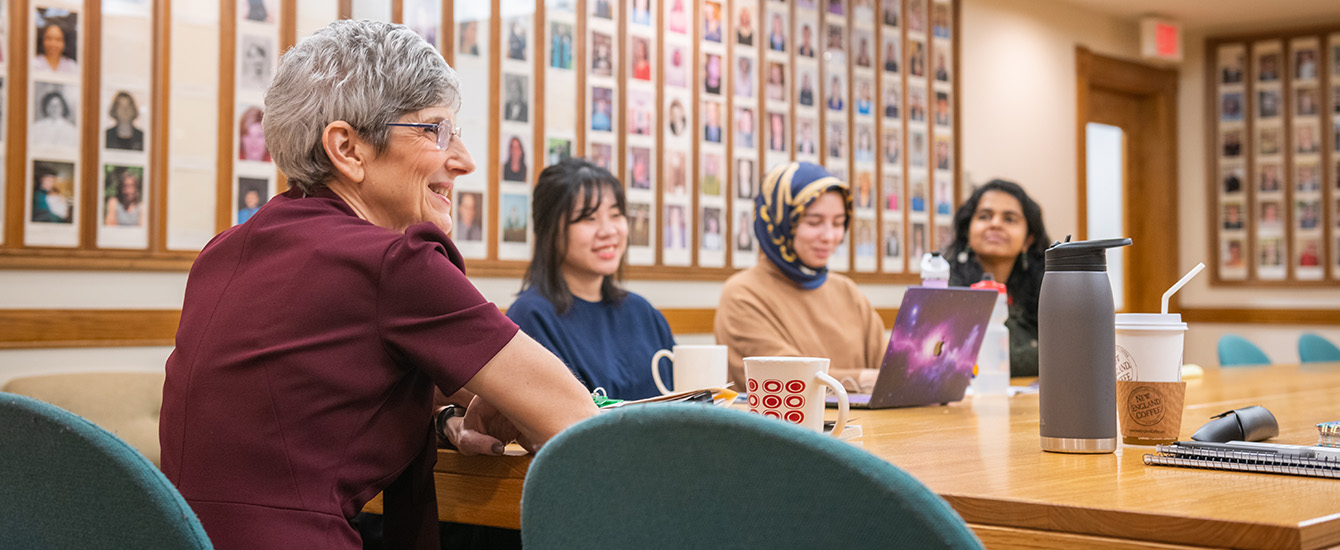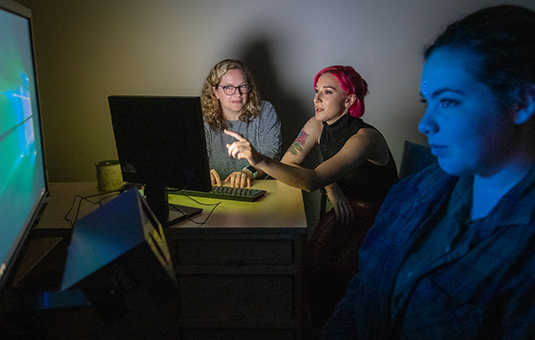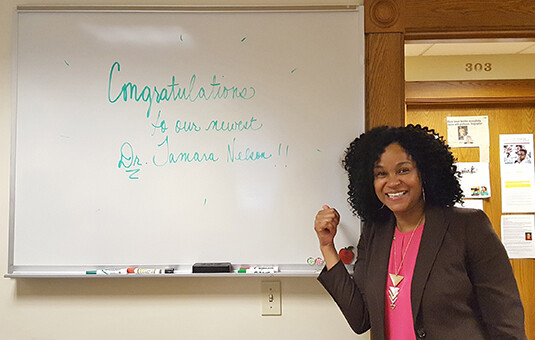Why apply to Clark’s developmental psychology doctoral program?
Clark University’s developmental psychology doctoral program at the nationally-renowned Frances L. Hiatt School of Psychology is dedicated to studying human development in societal and cultural contexts. The program has a long and distinguished history, including the work of developmentalists such as G. Stanley Hall, the first president of the University and founder of the American Psychological Association at Clark in 1892.
Continuing in a tradition of innovative theory and research pertaining to the study of human development, our faculty examine issues like bilingualism, racial experiences, and factors influencing learning and achievement — all with a focus on how the topics intersect with development and well-being. Designed to help students join an ongoing program of research, our program emphasizes scholarship at the forefront of interdisciplinary theory and practice linking human development to other disciplines.
The program’s intimate size, as well as its setting at a small urban research university, allow for close student-faculty relationships while providing opportunities for faculty, graduate students, and undergraduates to collaborate within the department and across the campus and Worcester communities. All full-time graduate students are guaranteed tuition remission and graduate assistantships are available. This arrangement fosters a collegial, supportive intellectual community.
Our Community
The developmental psychology program seeks talented students who are able, through initiative and intellectual curiosity, to advance research interests among our dedicated, collaborative community. Though many different methodological approaches are represented, we are committed to unity of psychology, not fragmentation, and it’s common for graduate students across our three graduate specializations to share ideas in the classroom, research groups, and laboratories. Our department intentionally structures courses to let students focus on the topics at hand, not competition among peers. As a community, we embrace a non-competitive, respectful and supportive learning environment. As part of a broader department-wide commitment, the developmental psychology program is actively working towards the inclusion of marginalized populations and to enhancing diversity within the field.
Our Research in Developmental Psychology
A core part of graduate training in developmental psychology involves participation in one of the active labs or areas of research described below. Students join one or more of these groups and remain active throughout their graduate studies. Click on the individual labs or research groups to learn more about the topical focus and students, postdocs, and visitors involved.
Note as well that the developmental forum provides an opportunity for all members of these groups (as well as other interested individuals) to regularly come together to discuss current research and salient issues pertaining to developmental psychology of interest to all in the program.



